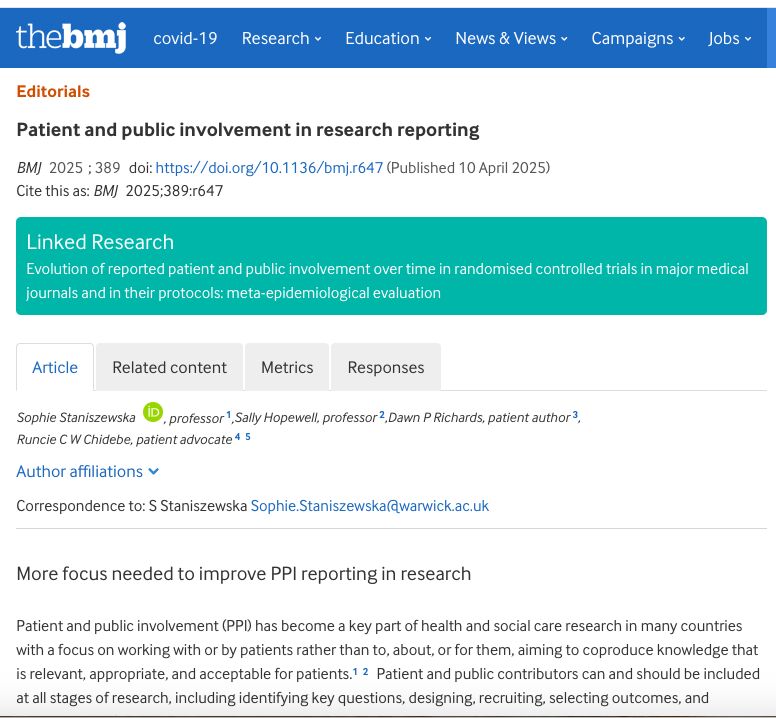Runcie C.W. Chidebe, Executive Director of Project PINK BLUE, shared a post on LinkedIn:
“I am so excited to share our editorial, “Patient and Public Involvement in Research Reporting,” which was published in the BMJ.
Patient and Public Involvement (PPI) in research refers to the meaningful engagement of patients, members of the public, and potentially carers or family members in the research process itself, rather than just as participants. PPI is about active involvement and co-designing of the trials/other clinical studies, data collection, and other methods. When patients and the public are involved directly and meaningfully in research, it is the best and only route to findings that will improve patient care. It also enhances research quality, increases relevance, improves health outcomes, increases transparency/accountability, and empowers patients. Despite all the benefits, PPI in research reporting is arguably poor.
In this editorial, we discussed the study by Vanneste et al., (2025) that identified poor progress in reporting PPI in randomised controlled trials. Vanneste et al., (2025) used a meta-epidemiological evaluation to systematically review PPI reporting in randomised controlled trials. They explored four major medical journals (i.e., The BMJ, JAMA, New England Journal of Medicine and The Lancet) since 2015.
In summary, they found the following:
- Of 360 articles, PPI was reported in 64 (18%) articles and 56 (19%) protocols.
- Overall, 84 (23%) of 360 trials reported PPI in the article or protocol.
- Most articles (23%) and protocols (35%) described one single study activity/process involving PPI.
- Compared to the protocols, the PPI information provided in the articles was often vague or moderately detailed.
- The most common PPI activity was participation in trial committees.
Based on the above, we argue that PPI reporting is still poor in many trials and that poor PPI reporting means that PPIs’ contributions to a study are not publicly acknowledged, remaining only within the team. Patient and Public Involvement in research is not favor to the patients, advocates, caregivers, and public; rather, it is an opportunity for science.
Please read the full editorial here. Kindly repost, and feel free to share your opinion using the comment section.
I want to give special thanks to Prof. Sophie Staniszewska for leading this effort and to my co-authors, Dr. Dawn Richards and Prof. Sally Hopewell. Let’s do more.”
Authors: Sophie Staniszewska, Sally Hopewell, Dawn P Richards, Runcie C.W. Chidebe



